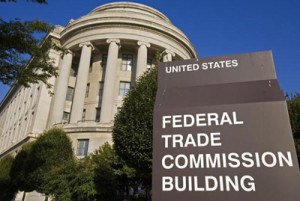Federal Trade Commission’s new rules limits up-front fees for loan modification services
 On November 19, 2010, the Federal Trade Commission (FTC) issued 16 C.F.R. Part 322, the Mortgage Assistance Relief Services Rule (MARS) concerning providers of mortgage relief service. While many relief providers are legitimate, “At a time when many Americans are struggling to pay their mortgages, peddlers of so-called mortgage relief services have taken hundreds of millions of dollars from hundreds of thousands of homeowners without ever delivering results,” FTC Chairman Jon Leibowitz said. Unlike an attorney assisting a client in a loan modification or short sale effort, many mortgage relief services do not have a good understanding of the consistently changing rules and laws (both state and federal) involving mortgages and foreclosures and are not subject to code of ethics.
On November 19, 2010, the Federal Trade Commission (FTC) issued 16 C.F.R. Part 322, the Mortgage Assistance Relief Services Rule (MARS) concerning providers of mortgage relief service. While many relief providers are legitimate, “At a time when many Americans are struggling to pay their mortgages, peddlers of so-called mortgage relief services have taken hundreds of millions of dollars from hundreds of thousands of homeowners without ever delivering results,” FTC Chairman Jon Leibowitz said. Unlike an attorney assisting a client in a loan modification or short sale effort, many mortgage relief services do not have a good understanding of the consistently changing rules and laws (both state and federal) involving mortgages and foreclosures and are not subject to code of ethics.
The MARS Rule is designed to protect distressed homeowners from these mortgage relief scams. The most significant new rule under MARS is that non-attorneys offering mortgage relief services may not collect any fees until:
- The company has provided the consumers with a written offer from their lender or loan servicer that the consumer decides is acceptable.
- The company has provided the consumers with a written from the lender or loan servicer describing the key changes to the mortgage that would result if the consumer accepts the offer.
- The company must remind the customer of their right to reject the offer without charge.
The MARS Rule also requires mortgage relief services to disclose key information to customers, including that the company is not associated with the government or the customer’s lender and that the lender may not agree to change the customer’s loan. In addition, it the company tells the consumer to stop paying their mortgage, they must inform the consumer that this could cause them to lose their home and damage their credit rating.
In addition to the mandatory disclosures, the MARS Rule prohibits mortgage relief companies from making false or misleading claims about services, including claims about:
- the likelihood of consumers getting the results they seek;
- the company’s affiliation with government or private entities;
- the consumer’s payment and other mortgage obligations;
- the company’s refund and cancellation policies;
- whether the company has performed the services it promised;
- whether the company will provide legal representation to consumers;
- the availability or cost of any alternative to for-profit mortgage assistance relief services;
- the amount of money a consumer will save by using their services; or
- the cost of the services.
In addition, the rule bars mortgage relief companies from telling consumers to stop communicating with their lenders or servicers. Companies also must have reliable evidence to back up any claims they make about the benefits, performance, or effectiveness of the services they provide.
Attorneys are exempt from this new rule as long as they are engaged in the practice of law, licensed in the state in which the consumer or home is located, and comply with the State’s ethics rules. These are requirements that any practicing attorney should meet anyway. In addition, and fees attorney’s collect will be placed in a client’s trust account and only withdraw for work performed in accordance with the retainer agreement the client has signed.
All provisions of the rule except the advance-fee ban will become effective December 29, 2010. The advance-fee ban provisions will become effective January 31, 2011.
https://www.warealestatelawblog.com/federal-trade-commissions-new-rules-limits-up-front-fees-for-loan-modification-services/trackback/



COMMENTS (0)
Read through and enter the discussion with the form at the end